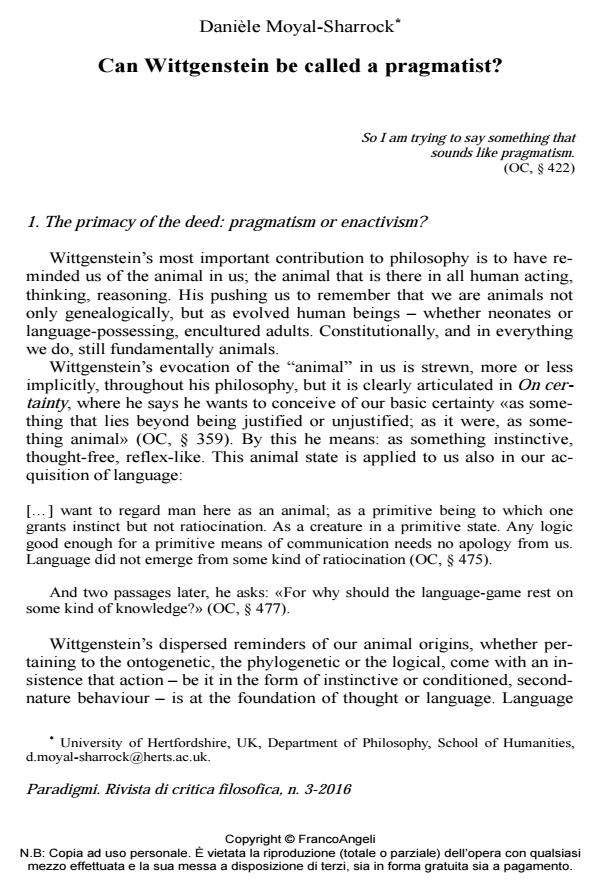Can Wittgenstein be called a pragmatist?
Journal title PARADIGMI
Author/s Danièle Moyal-Sharrock
Publishing Year 2017 Issue 2016/3
Language English Pages 19 P. 67-85 File size 218 KB
DOI 10.3280/PARA2016-003005
DOI is like a bar code for intellectual property: to have more infomation
click here
Below, you can see the article first page
If you want to buy this article in PDF format, you can do it, following the instructions to buy download credits

FrancoAngeli is member of Publishers International Linking Association, Inc (PILA), a not-for-profit association which run the CrossRef service enabling links to and from online scholarly content.
When Wittgenstein is called a pragmatist, it is usually with qualification. In this paper, I examine some of the criteria used to relate Wittgenstein to pragmatism (primacy of action, anti-foundationalism, fallibilism), and conclude that inasmuch as Wittgenstein is neither an anti-foundationalist nor a fallibilist, there may not be sufficient grounds to call him a pragmatist. But nothing stands in the way of considering him a full-fledged enactivist.
Keywords: Wittgenstein, Pragmatism, Enactivism, Foundationalism, Fallibilism.
Danièle Moyal-Sharrock, Can Wittgenstein be called a pragmatist? in "PARADIGMI" 3/2016, pp 67-85, DOI: 10.3280/PARA2016-003005